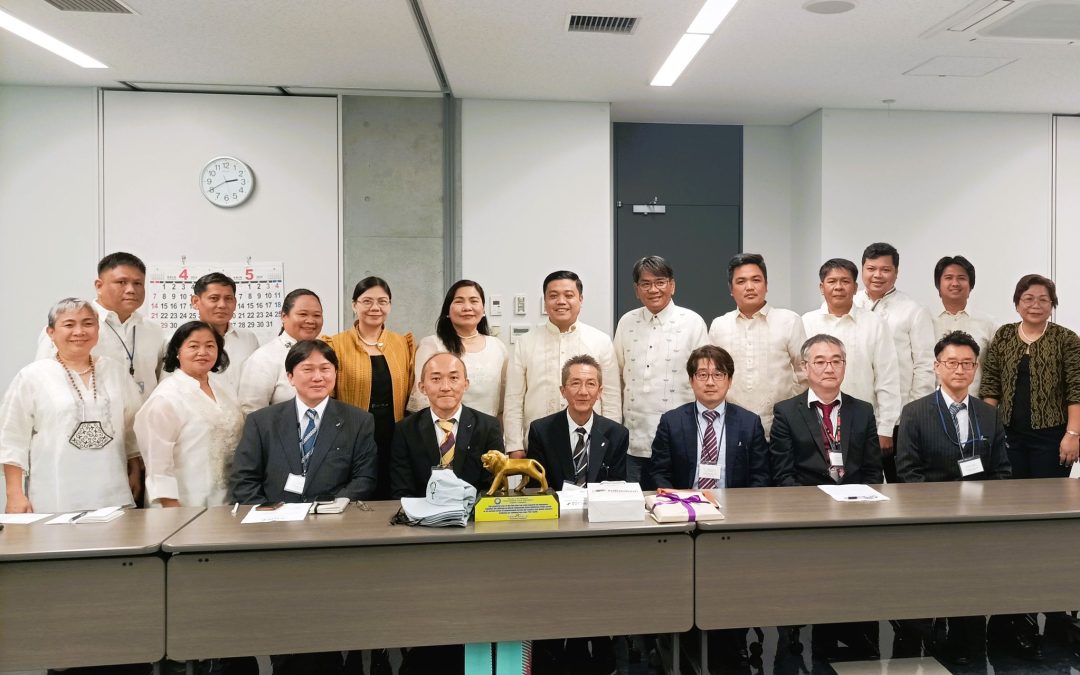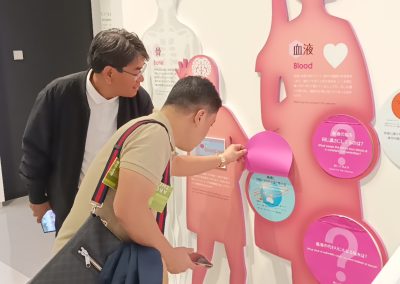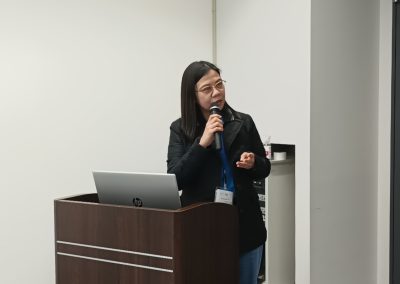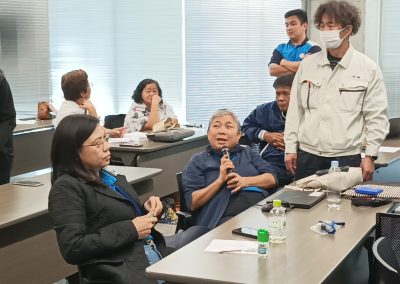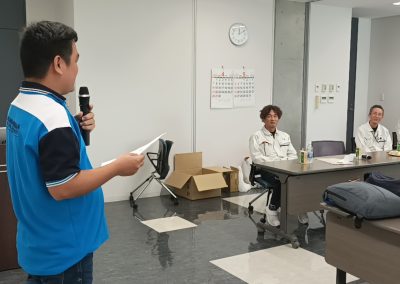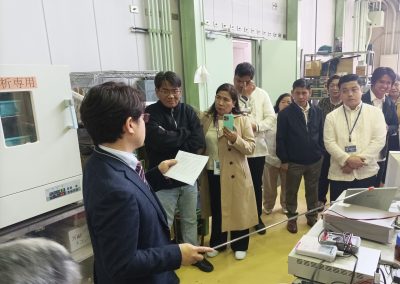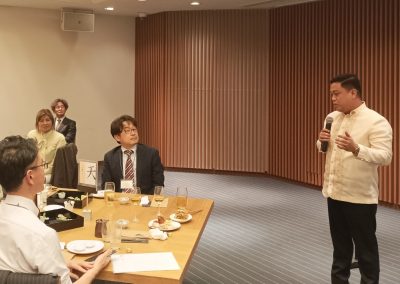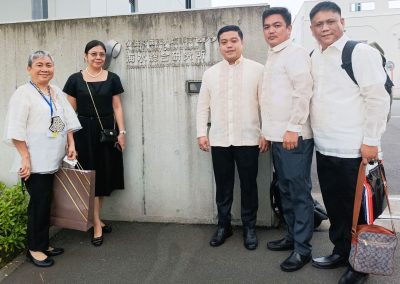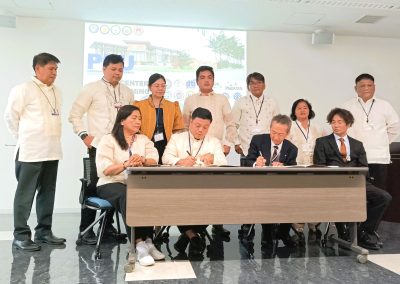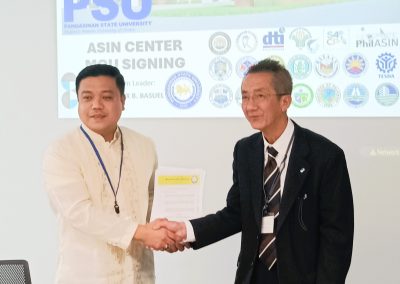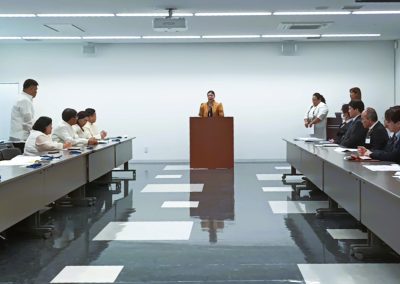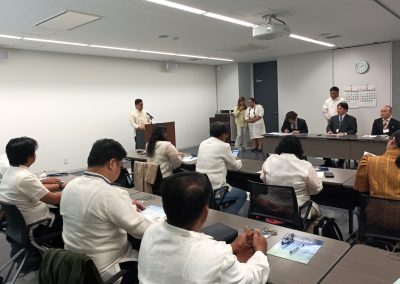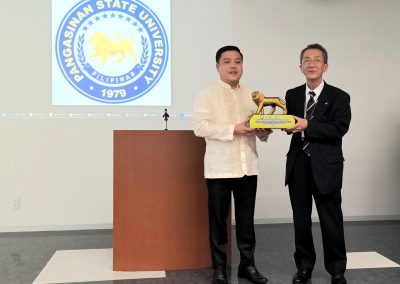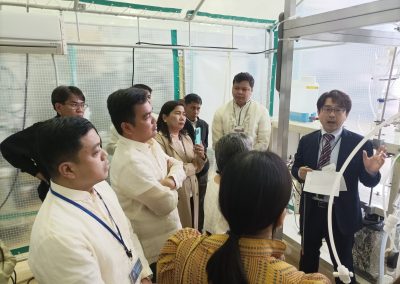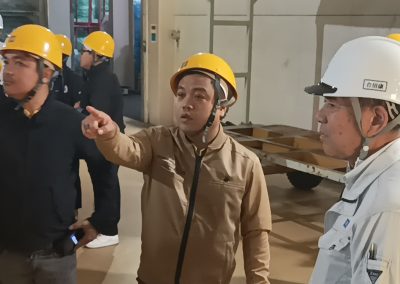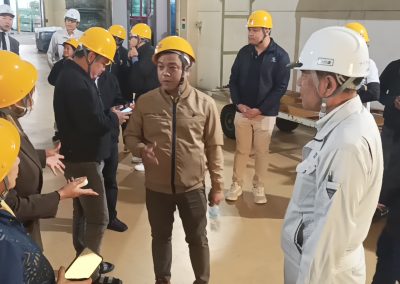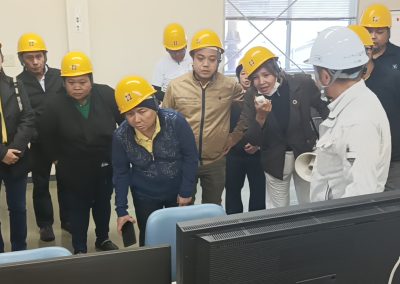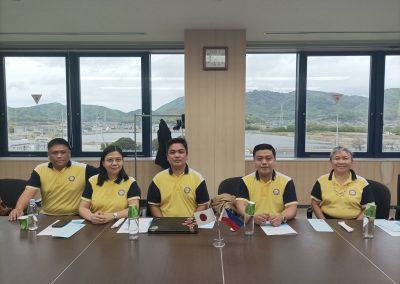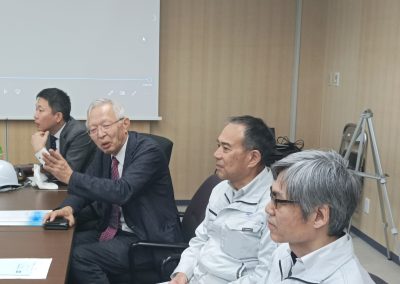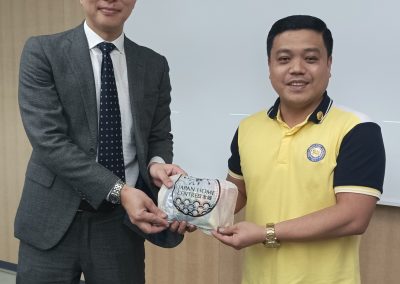Unlocking more opportunities for growth and development in the field of Research, the Philippine Team for Accelerating Salt Research and Innovation (ASIN) embarked on a journey to Japan on April 21-24, to explore its salt industry’s best practices and trends.
The Philippine ASIN team is comprised of experts from various agencies namely:
Department of Science and Technology (DOST) Region 1 led by Regional Director Teresita Tabaog; Bureau of Fisheries and Aquatic Resources (BFAR)-R1 led by Regional Director Rosario Segundina Gaerlan; DOST-PCIEERD with Study Leader Richard Aba; and the state universities – Pangasinan State University led by President Elbert Galas, Don Mariano Marcos Memorial State University led by University President Dr. Jaime Manuel; President Ramon Magsaysay State University with Study Leader Dr. Janice Baysa; and Mariano Marcos State University with Study Leader Dr. Rodel Utrera.
For the PSU Team, University President Dr. Elbert M. Galas was accompanied by Dr. Razeale G. Resultay (Vice President of Research, Extension, Innovation), Dr. Rex Basuel (Project 2 and Program Leader of ASIN Center), Dr. Irene De Vera (Study Leader and Head of Membrane Science) and Dr. Roy Flores (Study Leader and Head of the Salt and Engineering Facility).
The Philippine delegation visited the Research Institute of Salt and Sea Water Science (RISSWS), the research component of Salt Industry Center of Japan (SICJ), Nakai Salt Industries Co., Ltd, as well as the Tobacco and Salt Museum.
A signing of a Memorandum of Understanding between PSU, led by Dr. Galas and RISSWS President Dr. Naohito Yoshikawa, took place in the visit that aims to technically guide the former in ion exchange membrane method and other salt research technologies and innovations.
Japan also showcased its best practices on salt technology to the ASIN delegates that include: Constructing Salt Manufacturing Technology, Ensuring Safety of Salt and Salt Manufacturing Process, Exploring Possibilities of Salt and Contracting Inspection of Salt Quality.
In a visit to the Tobacco and Salt Museum, the delegates have proven that the relationship of mankind to salt is older still, as salt is a substance indispensable for maintaining life. Since Japan has no viable natural sources of salt, the early inhabitants were forced to use their ingenuity in producing sea salt. Over the centuries, this disadvantage resulted in a sophisticated, unique salt technology.
Accordingly, President Galas explained that PSU, in its vision to become an industry-driven state university by 2030, seeks to ignite the wheel of innovation that will revive the salt production in the Philippines and transform it into a 21st century industry, thus the need for revitalization partners such as Japan’s RISSWS.
“Boosting the Philippine’s salt industry would not only benefit salt farmers and their families but also every Filipino consumer and the local economy. It would address problems on importation,” he added.
It can be remembered that PSU undertook the organization of the First Philippine Salt Congress in September 2022 and was invited to a public hearing at the Senate of the Philippines in January 2023 for playing a pivotal role as an academic institution that gives priority to the salt industry.
#PSUresearchers
